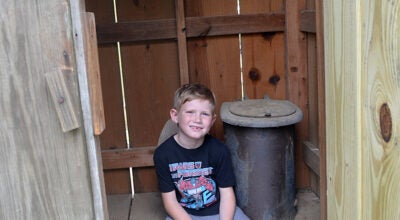Local industries adapt to pandemic challenges
Published 9:40 pm Tuesday, February 16, 2021
|
Getting your Trinity Audio player ready...
|
When the coronavirus began to emerge in Asia in late 2019, it would have been difficult to predict the virus would still be rampant in 2021.
In the Spring of 2020, the Alabama Legislature ended its session early, schools were closed and face masks became part of everyday wardrobes.
Even though the pandemic is far from over, local industries have adapted to the challenges of continuing production during a worldwide COVID outbreak.
“Early in the pandemic, state and local leaders prioritized the importance of continuing essential manufacturing and industrial operations vital to the economy in a safe and responsible way,” Chase Cobb, president of the Pike County Economic Development Corp., said. “Pike County is fortunate that our diverse industries provide many of the essential products and materials critical to the economy.”
Cobb said local industries were able to adapt quickly and keep production schedules on track.
“There was no accurate way to predict the potential effects COVID could have on our industrial community,” he said. “Pike County’s industrial leaders were put in a position where they had to adapt to challenging circumstances and their ability to work through those challenges has been a major factor in the success of navigating the pandemic.”
In some cases, Cobb said some industries had continued to grow and create jobs. Among those were KW Plastics, Golden Boy, Lockheed-Martin, Sikorsky and Kimber.
“Whether it’s an expansion or creation of new jobs, all of these industries are continuing to experience success and future growth,” Cobb said.
When the Legislature recessed last year, the state’s incentives package for both in-state and out-of-state industrial recruiting wasn’t renewed. He said the pandemic provided a lot of recruitment challenges, and the PCEDC had to adjust to keep pace on the recruiting trial.
“Many of the traditional ways of recruiting were postponed as a result of COVID, but it’s important to always be working to put your community in the best possible position to succeed for the future,” he said. “The recent successes with recruitment and development have made the Troy-Pike County area an attractive destination for potential industry and retail, and those conversations have continued throughout the last year in spite of the uncertainty caused by pandemic.”
When the Legislature opened its session for 2021, both lawmakers and Gov. Kay Ivey had the reauthorization of the state’s incentives plans on the high-priority list. The Legislature overwhelmingly renewed the incentives package and Ivey signed the bill into law last Friday.
“The economic development and incentives reauthorization passed by the legislature is another great step in securing Alabama as a leader in economic development and recruitment,” Cobb said. “These incentives have been vital in attracting many of the new and expanding industries in our state. It is another essential tool when it comes to recruiting and expanding industry, and because of the performance-based requirements in terms of job creation and investment, it ensures a good return on investment for taxpayer dollars.”
Cobb said while local industries have faired well, the retail industry hadn’t faired quite as well, but that should improve as the pandemic runs its course.
“There’s little doubt that the retail industry has been specifically hard hit by pandemic,” Cobb said. “Many industry experts have compared the effects of COVID on the retail sector to the economic effects of the Great Recession due to the early shutdowns and safety measures. However, there is a lot of confidence that this too shall pass and the retail economy is poised to bounce back stronger than before. It’s more important than ever for communities like ours to continue supporting our local retail establishments and business owners.”




